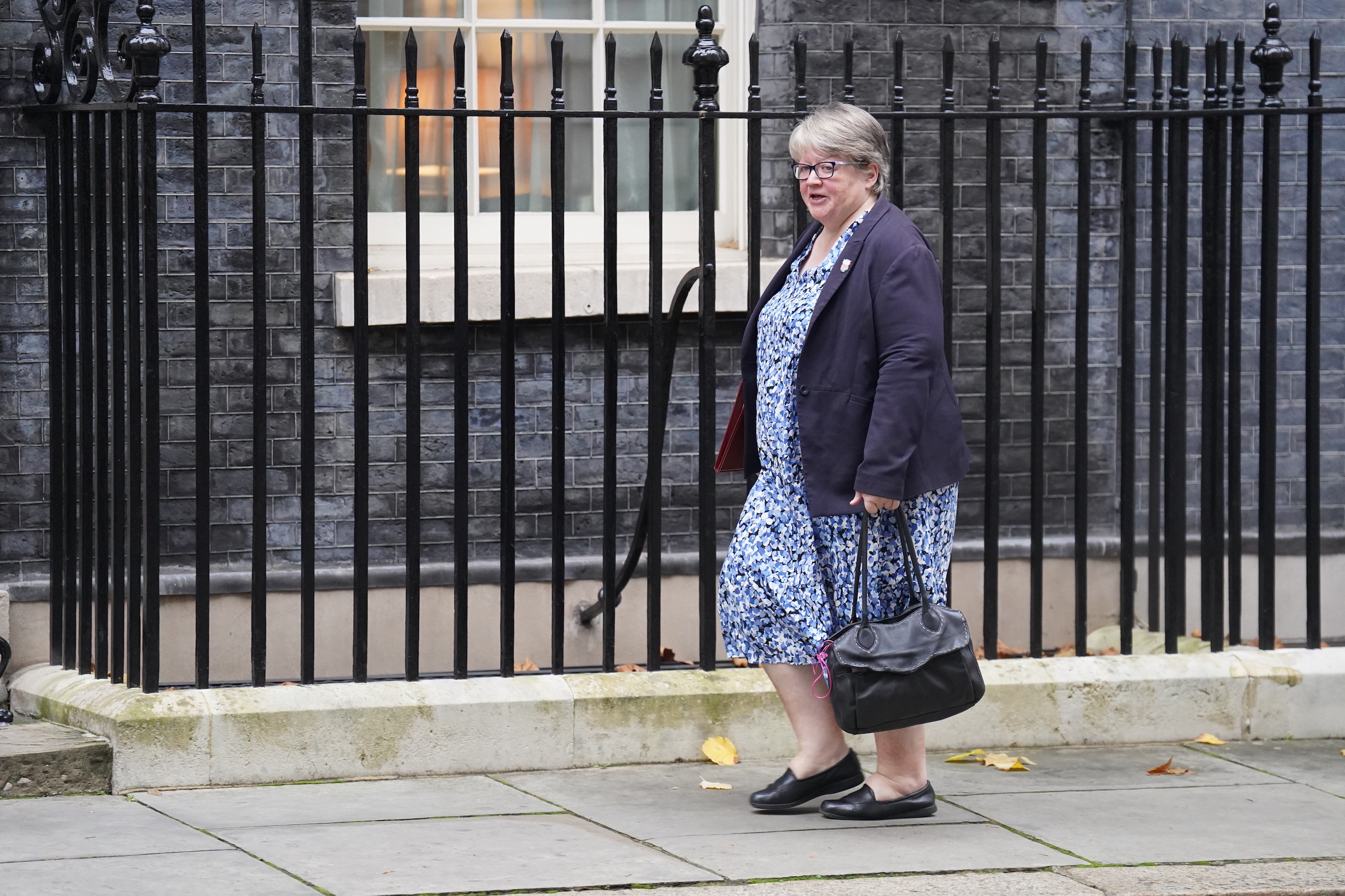Exclusive: Thérèse Coffey has been issued a “force-feeding challenge” by animal rights organisation PETA after the it was suggested that a ban on importing foie gras is “not a priority”.
The challenge, enclosed in a letter addressed to the environment secretary set to be received today, will see Ms Coffey sent 20 kilos of rice and a funnel, mimicking the controversial nature of foie gras production.
“Could you stomach it?”, the letter challenges.
Producing foie gras is already banned in the UK, but approximately 200 tons of the product is imported into the country each year. Earlier this month, multiple celebrities – including Miriam Margolyes, Alesha Dixon, Mark Rylance, and Jo Brand – co-signed a letter to the prime minister demanding an end to UK imports of foie gras, referring to it as “torture in a tin”.


This letter, coordinated by Animal Equality UK and PETA and gathering more than 250,000 signatures, said: “Not only is foie gras horrifically cruel, but in the midst of a cost of living crisis in which so many are concerned about how they will put food on the table, it’s out of touch and frankly grotesque that the government continues to defend the import and sale of a vile product that costs around £95 a tin”.
During foie gras production, 2 kilos of grain can be pumped into birds’ stomachs daily through metal tubes, causing their livers to swell to 10 times their natural size.
Bans on imports of foie gras were included in the animals abroad bill as a way of improving animal welfare before being scrapped by No 10 last year. A reported U-turn came after complaints from some ministers, including Jacob Rees-Mogg, who is said to have argued that banning things is “un-Conservative”.
The Conservatives’ 2019 election manifesto committed the party to not compromise on animal welfare standards in international trade.
The new letter, which will be sent alongside the 20 kilos of rice and funnel, says: “While we welcomed a statement from the Department for Environment, Food & Rural Affairs clarifying that, contrary to media reports, the government has not shelved plans to bring forward this legislation, we remain concerned by the lack of decisive action on this issue”.
It adds: “To help you understand the urgency, we have enclosed 20 kilograms of rice – the equivalent for humans of what is pumped into the stomachs of ducks and geese on foie gras farms every single day – along with a feeding tube.…
“For the sake of birds who go through this almost unimaginable torture for weeks on end before they’re one day strung upside down and their throats are cut, we ask you to please prioritise the import bans on foie gras and fur, products that almost no one wants and certainly no one needs.
“Please don’t betray animals, including the people you serve. Ban foie gras and fur imports without delay”.
Kate Werner, the Senior Campaigns Manager at PETA, says: “Twenty kilos of rice is the human equivalent of the amount of grain shoved down the throats of birds every day on foie gras farms”.
She adds: “If Thérèse Coffey doesn’t find it fowl to import diseased bird livers, then surely, she can stomach PETA’s force-feeding challenge”.
When approached for comment DEFRA referred politics.co.uk to its recent blog post: “Coverage on fur and foie gras”.
The post states: “Several news outlets have reported inaccurately on the government’s position on fur and foie gras following misleading coverage in the Sunday Telegraph.
“Future legislation to ban the imports of fur and foie gras has not been ‘dropped’ or ‘shelved’. However, with limited Parliamentary time available, other important legislation is currently taking priority – including Defra’s Genetic Technology (Precision Breeding) Bill and Kept Animals Bill”, the post adds.












